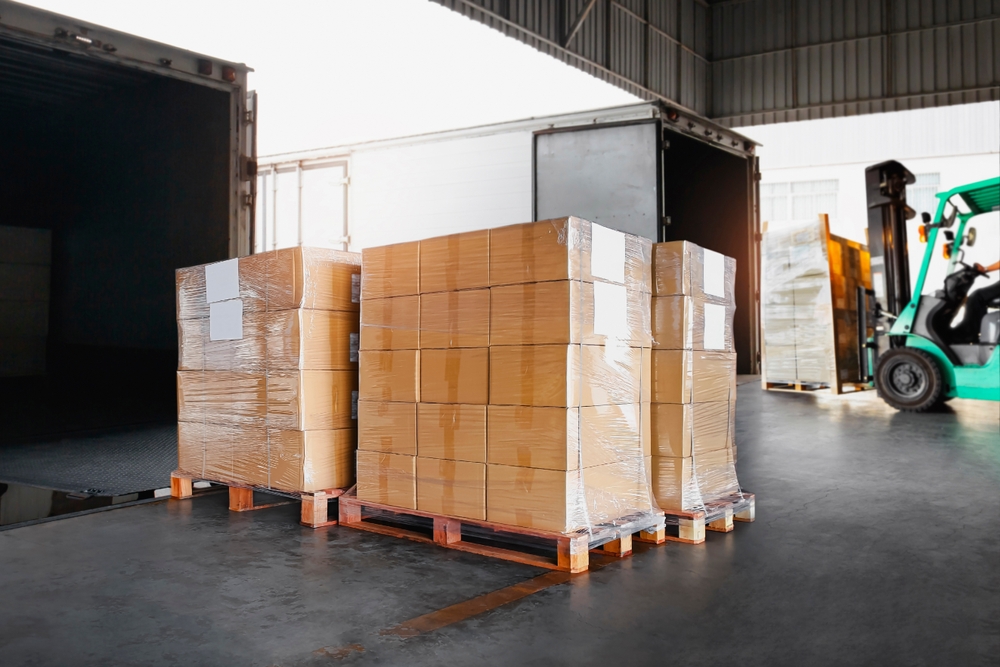
Material handling is the beating heart of any successful warehouse operation, and in Bryan—a rapidly growing hub for commerce and distribution—choosing the right equipment is more critical than ever. Whether you’re launching a new warehouse or scaling your current operation, understanding the differences between pallet trucks vs forklifts can help optimize workflow, reduce costs, and improve safety. The right choice depends on a variety of factors, including warehouse layout, load requirements, and frequency of use.
When evaluating material handling solutions in Bryan, businesses must weigh the advantages and disadvantages of pallet trucks and forklifts carefully. Each serves distinct functions and offers unique benefits, and the right option can make or break operational efficiency. This comprehensive guide breaks down the comparison to help you make an informed decision tailored to the needs of your Bryan-based facility.
Understanding the Core Functions and Differences
At first glance, both pallet trucks and forklifts might seem to perform the same task—moving heavy loads from point A to point B. However, their capabilities diverge significantly when you dig deeper. Pallet trucks, also known as pallet jacks, are designed primarily for ground-level transport of palletized goods. They are ideal for horizontal movement over short distances. There are two main types: manual pallet trucks, which rely on human force, and electric pallet trucks, which add powered movement for greater efficiency.
Forklifts, on the other hand, are significantly more powerful. They can lift heavy pallets several feet off the ground and are ideal for vertical stacking and loading goods onto racks or trucks. Forklifts come in a variety of models, from electric and propane-powered units to rugged diesel-powered machines capable of operating outdoors. The main difference lies in lifting capability and versatility—forklifts offer broader use cases but come with higher operational costs and stricter safety requirements.
Choosing between pallet trucks vs forklifts in your Bryan warehouse means assessing how you intend to move goods and how much space is available. A compact facility with tight aisles may not accommodate a large forklift, while a high-volume warehouse requiring multi-tiered shelving will find pallet trucks insufficient.
Evaluating Your Bryan Warehouse Needs
When selecting between these material handling solutions, the physical characteristics of your warehouse in Bryan must be thoroughly evaluated. Consider aisle width, ceiling height, flooring condition, and the average weight and size of the loads. Pallet trucks shine in tight spaces and low-clearance areas where maneuverability is a priority. For example, in retail backrooms or small-scale storage spaces, manual or electric pallet jacks can quickly transport goods without the noise and emissions associated with forklifts.
Forklifts are better suited for larger warehouses with high shelving systems and constant heavy-duty demands. If your Bryan facility deals with frequent shipments or needs to load and unload freight trucks regularly, forklifts provide a major advantage. They also offer the power to lift pallets weighing thousands of pounds, something no pallet truck can safely manage. In addition, the type of flooring is critical. Smooth, even surfaces are ideal for pallet trucks, while forklifts can handle rougher or outdoor terrain.
Seasonality and growth expectations also play a role. If your warehouse sees fluctuating demand, a combination of both pallet trucks and forklifts might be ideal—pallet jacks for off-peak periods and forklifts for high-demand seasons. Businesses in Bryan experiencing rapid growth might find that investing in a forklift provides the scalability needed for future expansion.
Operational Efficiency and Cost Considerations
Cost is always a major factor when deciding between pallet trucks vs forklifts. Pallet trucks are considerably more affordable to purchase, operate, and maintain. A basic manual pallet jack can cost as little as a few hundred dollars, with electric models running up to a few thousand. Maintenance is minimal, and training requirements are straightforward, making them an accessible solution for many Bryan warehouses.
Forklifts, in contrast, are a more substantial investment. The price for a new forklift can range from $20,000 to over $50,000 depending on size, power source, and lifting capacity. Operational costs are also higher, considering fuel, maintenance, and the need for trained, certified operators. However, this cost is often justified by the increased productivity and versatility forklifts offer. For high-volume facilities, the speed and load capacity of forklifts can significantly reduce labor hours and enhance throughput.
Another aspect to consider is labor allocation. Pallet trucks are user-friendly and don’t require special certifications in many cases. This ease of use can allow businesses in Bryan to onboard employees quickly and flexibly. Forklifts, however, demand specialized training and certification, which can add time and cost but also enhance safety and professionalism in operations.
Ultimately, assessing your return on investment is critical. While pallet trucks offer a lower barrier to entry, forklifts may provide greater long-term value for operations requiring advanced material handling solutions. Performing a cost-benefit analysis tailored to your Bryan warehouse’s workload and growth trajectory is essential.
Safety and Compliance Considerations
Safety should never be compromised, regardless of whether you opt for pallet trucks or forklifts. In Bryan, like elsewhere, OSHA guidelines regulate the use of forklifts strictly. Operators must be trained and certified, and equipment must be inspected regularly. While these regulations may seem burdensome, they are crucial for preventing accidents, which can be costly in terms of both human injury and legal liability.
Pallet trucks, especially manual models, come with fewer regulatory burdens. However, that doesn’t mean they are risk-free. Improper use can lead to musculoskeletal injuries or accidents involving foot and leg trauma. Electric pallet trucks pose risks such as pinch points and the potential for losing control in tight spaces. Regular training on proper use, load limits, and path clearance is essential for maintaining a safe working environment.
Forklifts, with their greater size and lifting capacity, carry higher inherent risks. Tip-overs, load drops, and collisions are all potential hazards, particularly in crowded or poorly lit warehouses. Bryan businesses must invest in proper lighting, signage, and operator training programs to mitigate these risks. They must also factor in equipment inspections, emergency procedures, and ongoing compliance with OSHA standards.
A comprehensive safety plan that includes regular risk assessments, operator education, and clearly defined protocols is key regardless of which equipment you choose. While pallet trucks may offer a safer introduction to warehouse logistics, forklifts demand more robust safety systems and oversight.
Making the Right Investment for Your Bryan Business
The final decision between pallet trucks vs forklifts for your Bryan warehouse comes down to your specific operational needs, budget constraints, and future goals. For small or medium-sized warehouses with modest lifting needs, pallet trucks can provide a cost-effective and flexible solution. They’re easy to use, low-maintenance, and ideal for short-range movement across flat terrain. Their simplicity makes them a go-to option for businesses just starting or those with streamlined logistics processes.
However, for larger-scale operations or facilities anticipating growth, forklifts may be the smarter investment. Their power, speed, and vertical reach can handle complex material handling tasks that pallet trucks simply cannot. While the upfront costs and training requirements are higher, the efficiency gains can more than compensate in high-throughput environments.
Some Bryan warehouses may find a hybrid approach to be most effective. Using pallet trucks for routine, small-scale tasks and forklifts for more demanding jobs allows for operational flexibility. This dual strategy can maximize productivity while maintaining cost-efficiency, especially for operations with fluctuating inventory demands.
Conclusion
Selecting the right material handling solutions in Bryan is about more than just choosing a tool—it’s about aligning your equipment with your business strategy. By carefully considering factors such as warehouse layout, load volume, safety requirements, and budget, you can choose the equipment that best supports your long-term success. Whether you settle on pallet trucks, forklifts, or a blend of both, your decision will play a pivotal role in shaping the productivity and profitability of your Bryan warehouse.
Need Packaging Supplies in Bryan, OH?
Lamberson Packaging Solutions is a family-owned business that has been serving the greater Bryan, Ohio area for 15 years. We offer our customers the best product selection, fast delivery and do it all at great prices! We are proud to offer over 18,000 quality products from well known and trusted brands like 3M, Sealed Air, Tape Logic, Rubbermaid, Ivex, and many more! Our mission is to be the single-source answer to all of our customer’s packaging needs. Through the years, we have established a reputation with our customers for providing fast, reliable, and professional service. Our high level of responsiveness to our customer’s needs keeps them coming back! Give us a call today to get started!
